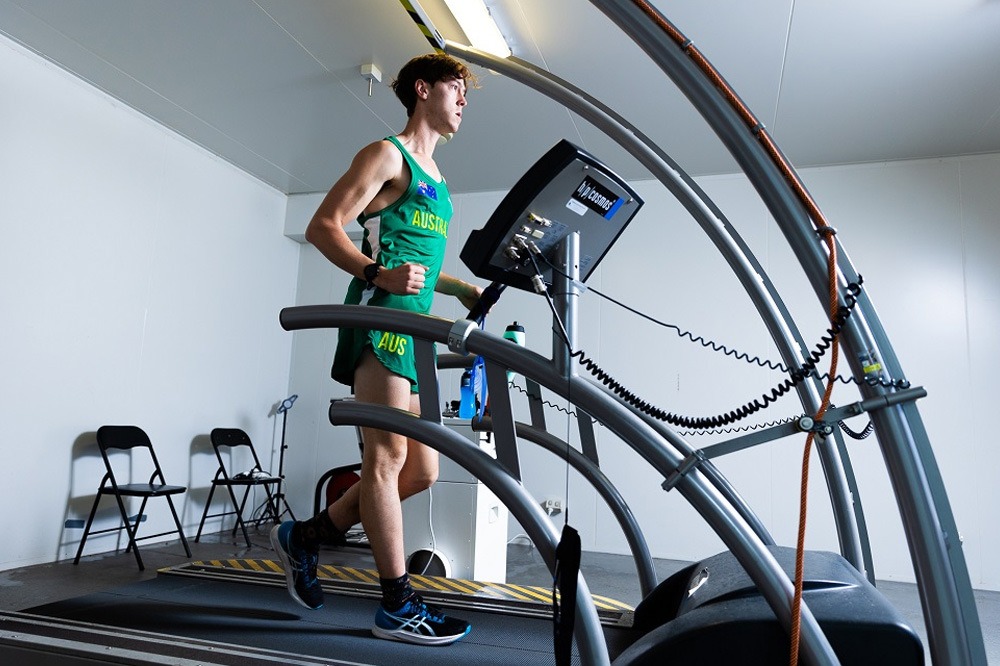The Environmental Physiology Research Laboratory at UCRISE houses state-of-the-art equipment for measuring thermoregulatory, cardiovascular, neuromuscular, cerebrovascular and cerebrocortical function. Our facilities include an environmental chamber capable of simulating altitude up to 5000 m, as well as extreme combinations of temperature (10-50ºC) and relative humidity (20-90%). The laboratory also houses a water immersion facility, along with cycling, running and rowing ergometers, with access to balance and proprioception assessment equipment.
Environmental physiology
The Environmental Physiology Research Laboratory at UCRISE examines the physiological mechanisms that impact on health and performance in adverse environments (heat and altitude), along with strategies to mitigate their influence and harness their adaptive potential.
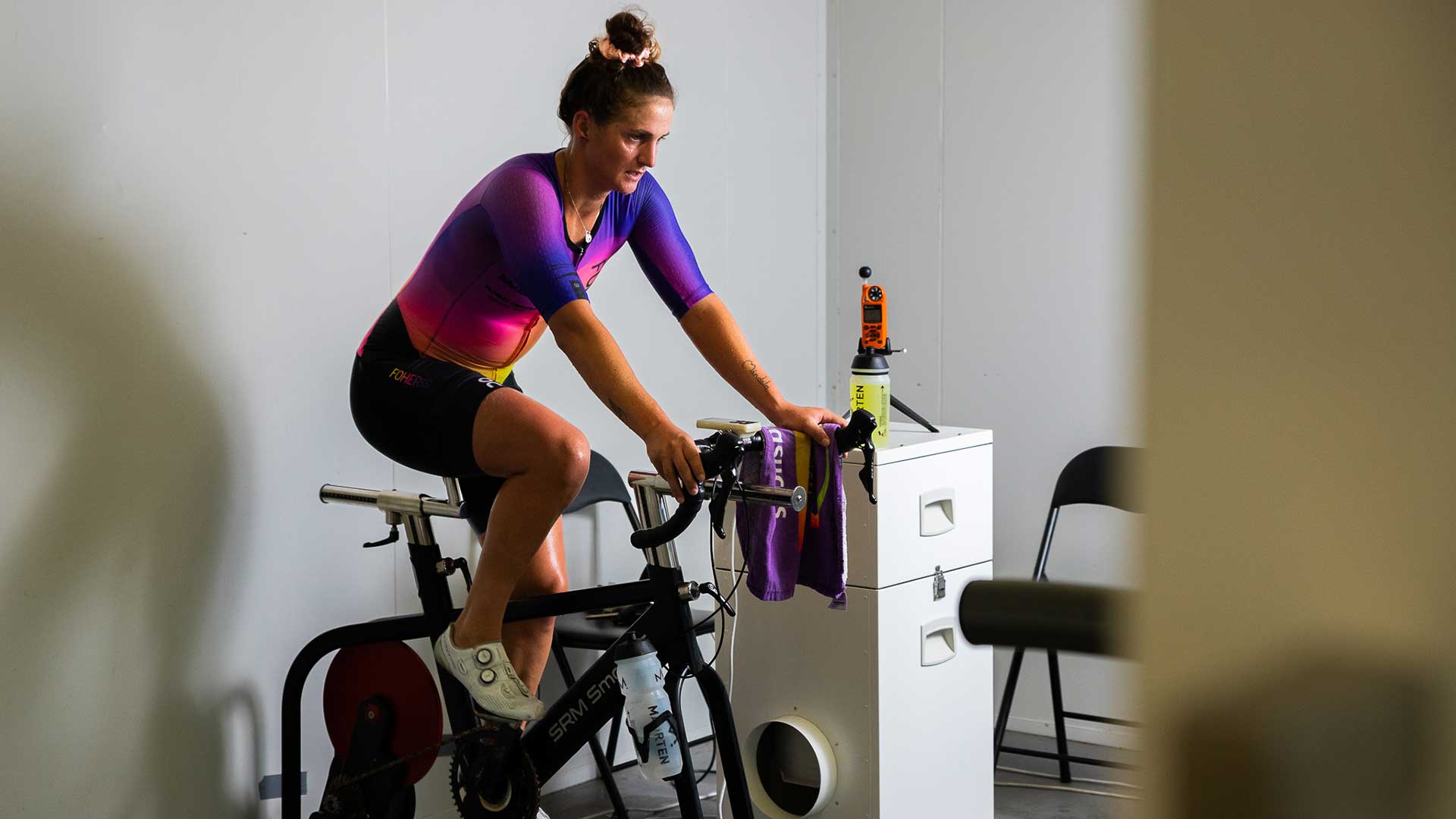
Performance and Fatigue in heat
Performance and Fatigue in heat
Endurance performance is impaired under heat stress. At the Environmental Physiology Research Laboratory, we seek to understand the mechanisms that mediate this impairment. As such, we measure the integrative response to heat stress to examine how the development of thermal strain and dehydration impact thermoregulatory capacity, along with cardiovascular, neuromuscular, cerebrovascular and cognitive function.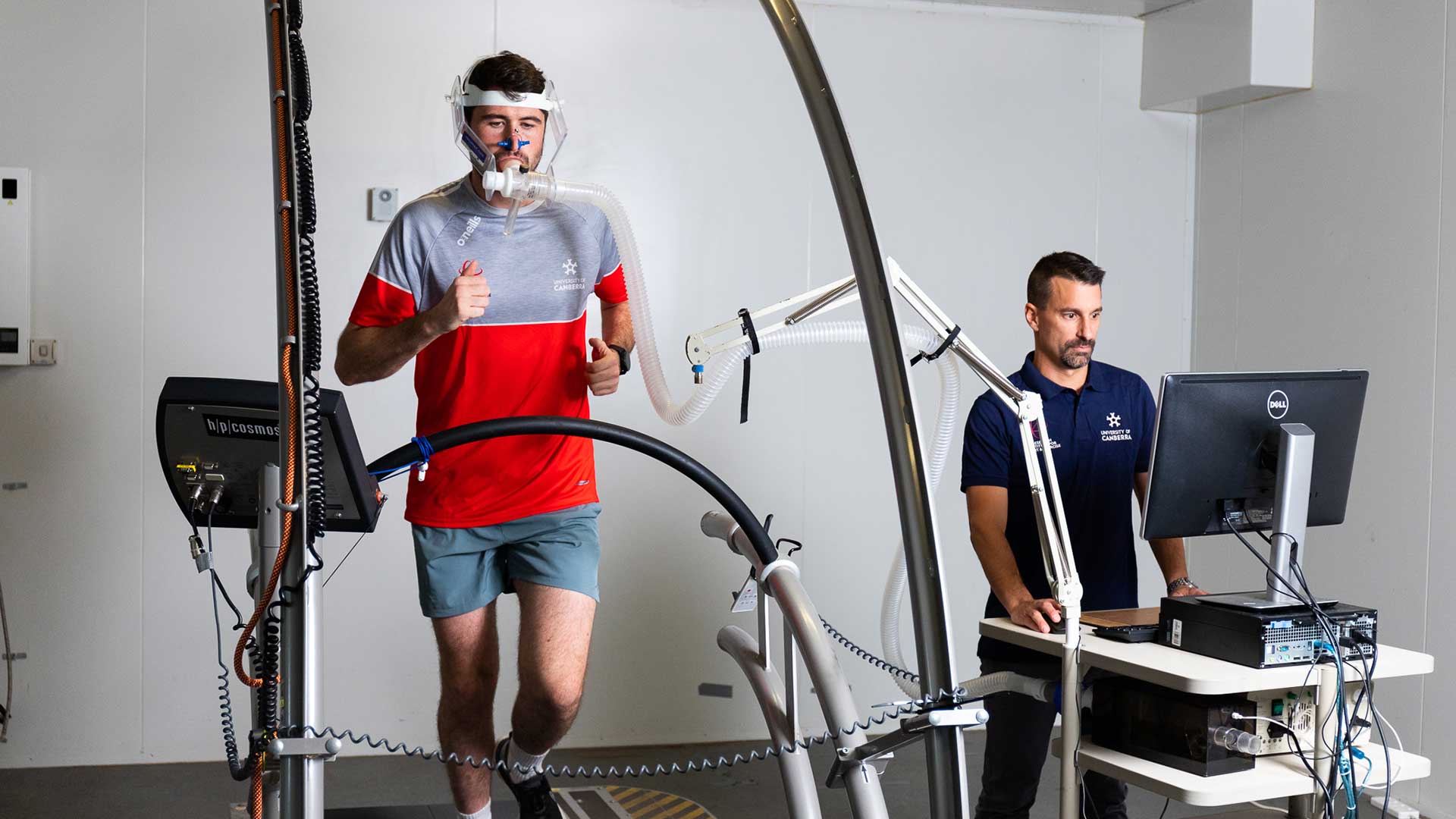
Performance and fatigue at altitude
Performance and fatigue at altitude
Exercise capacity is reduced when undertaken at altitude. At the Environmental Physiology Research Laboratory, we seek to understand how hypoxia, as well as hyperoxia, influence the ability to perform aerobic exercise. We also seek to understand how chronic exposure to altitude leads to adaptations that improve exercise performance. As such, we measure haematological responses, along with cardiovascular, neuromuscular and cognitive function during and following exposure to hypoxic environments.
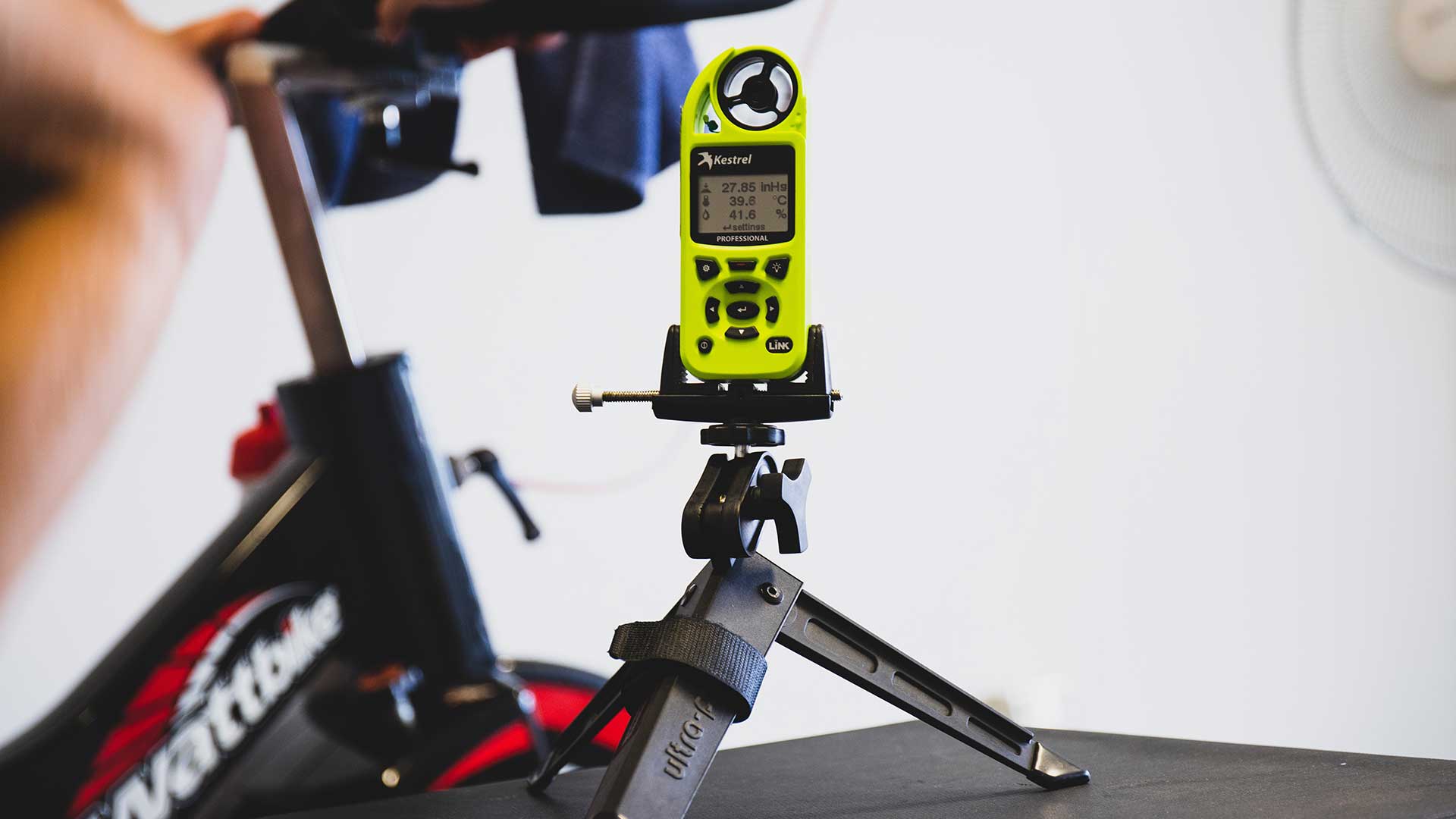
Heat acclimation in sport
Heat acclimation in sport
Heat acclimation is the most important intervention one can adopt to reduce physiological strain and optimise performance in the heat. At the Environmental Physiology Research Laboratory, we seek identify the most appropriate approach to heat acclimation for different populations (athletes, occupational workforce, military). We also seek to characterise the heat acclimation adaptations related to different approaches and environmental conditions, and describe potential differences in the adaptive response between males and females.
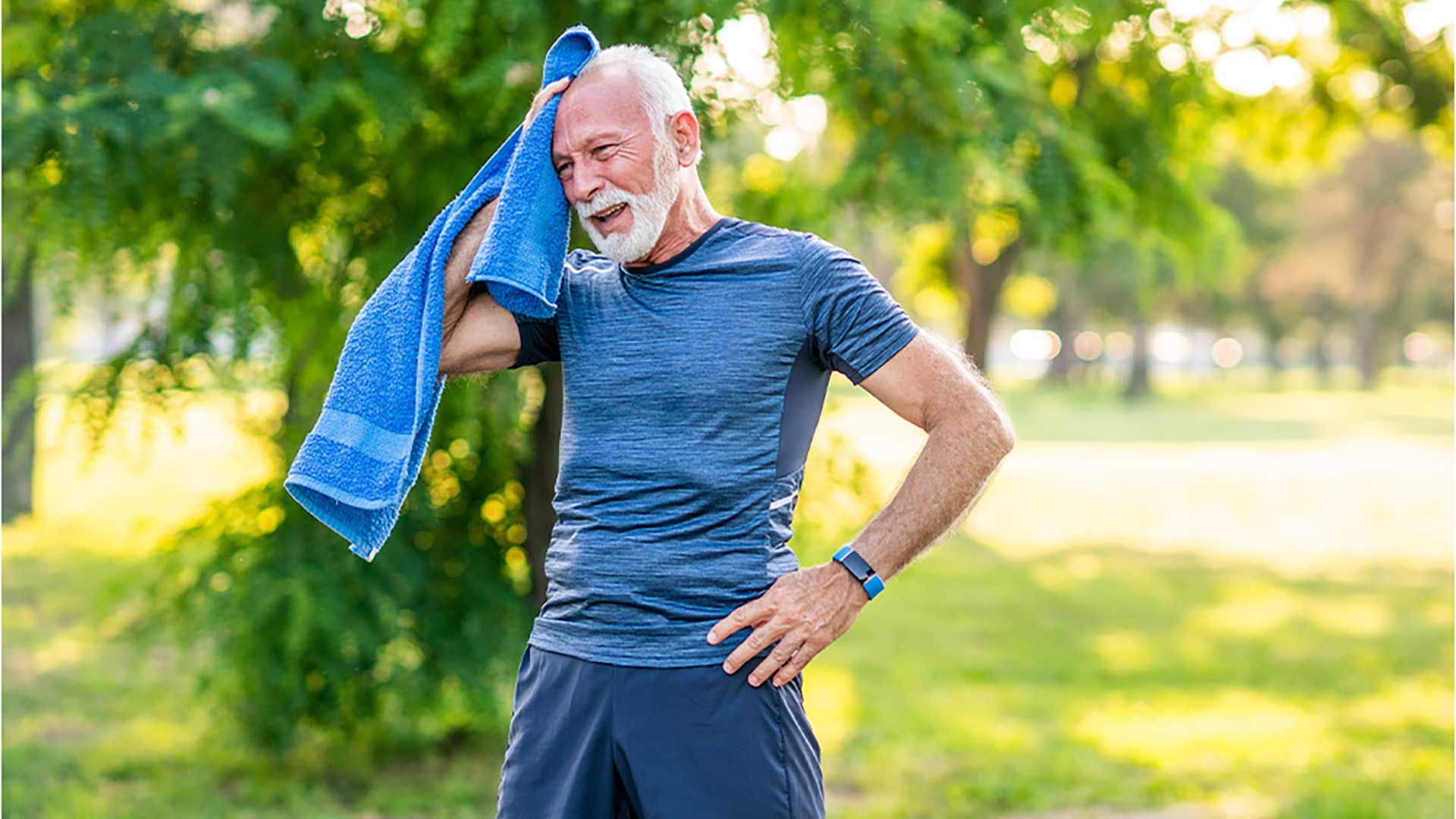
Exercise and climate change
Exercise and climate change
Cardiorespiratory fitness is associated with improved body temperature regulation and heat tolerance. At the Environmental Physiology Research Laboratory, we use exercise to help prevent or attenuate the decline in cardiovascular and thermoregulatory function associated with ageing and different health conditions, so as to maintain or improve resilience to rising global temperatures.
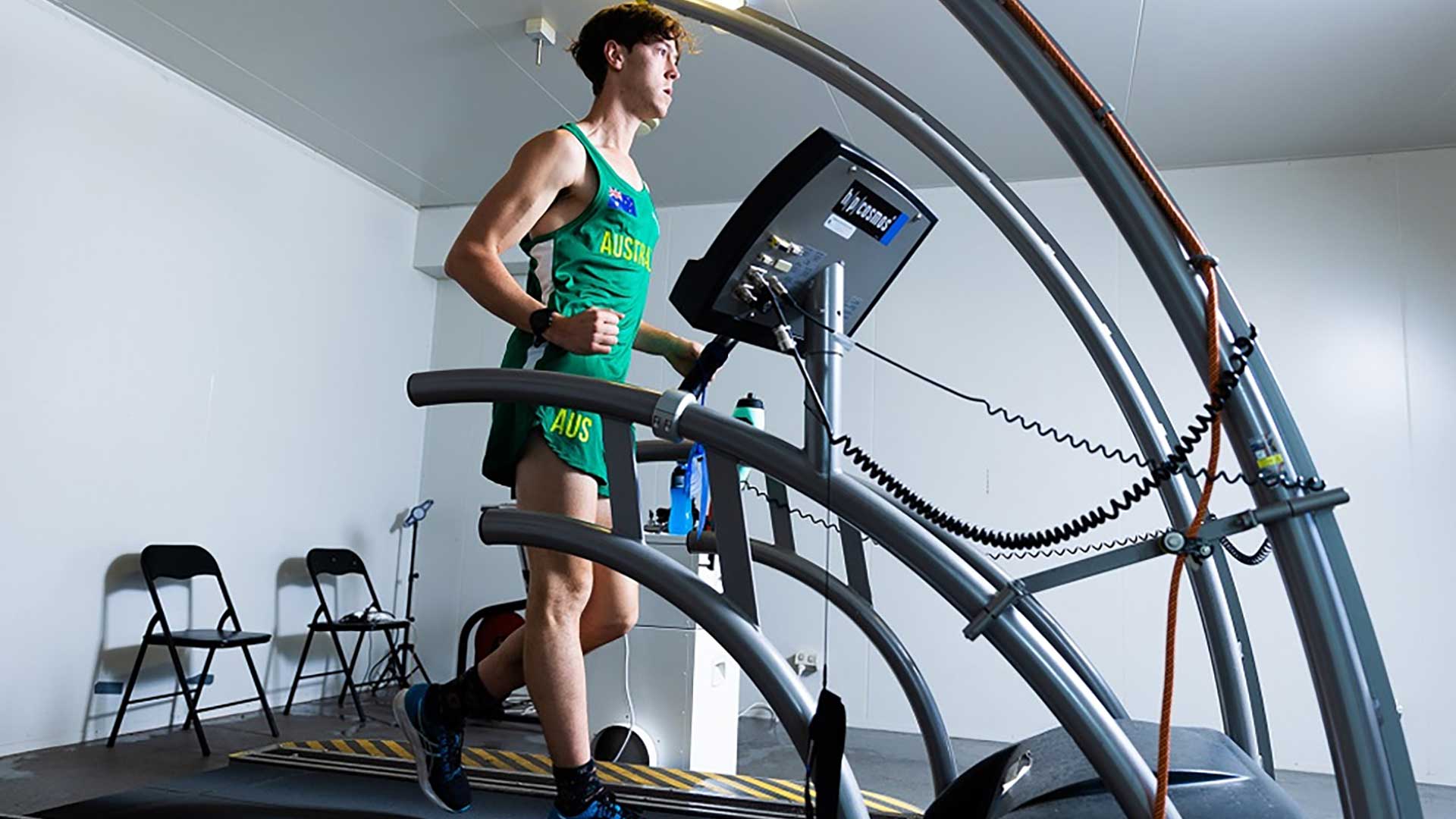
Heat tolerance testing
Heat tolerance testing
Military personnel, occupational workers (firefighters, miners, outdoor labourers) and athletes are often exposed to extreme environments, such as high heat and humidity. At the Environmental Physiology Research Laboratory, we utilise state-of-the-art equipment to conduct heat response tests to determine individual susceptibility to heat stress, and provide recommendations for return to work and play.
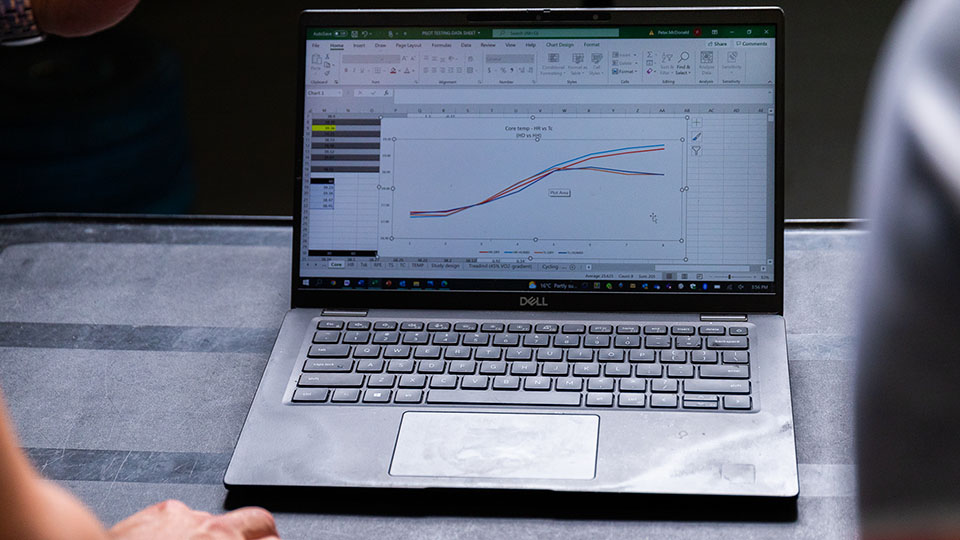
Heat acclimation predictor
Heat acclimation predictor
The Heat Acclimation Predictor estimates adaptation within a range of input conditions for the number of days of exposure, exposure duration per day, ambient temperature, and relative humidity.

Environmental Physiology Research Laboratory Theme Leader
PhD – University of Sydney
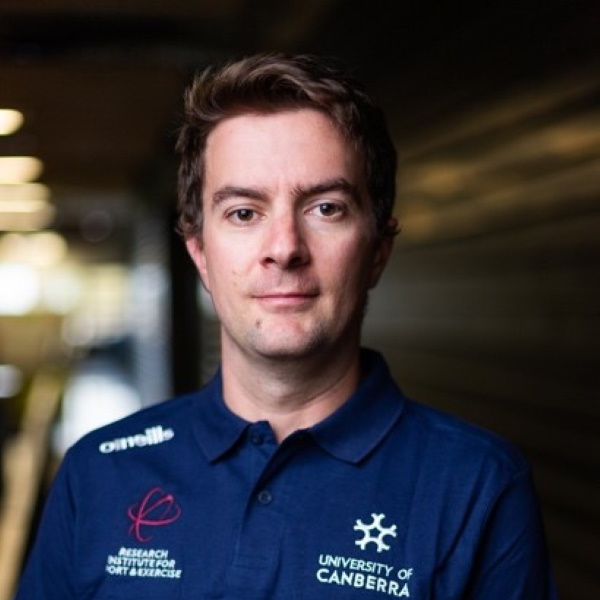
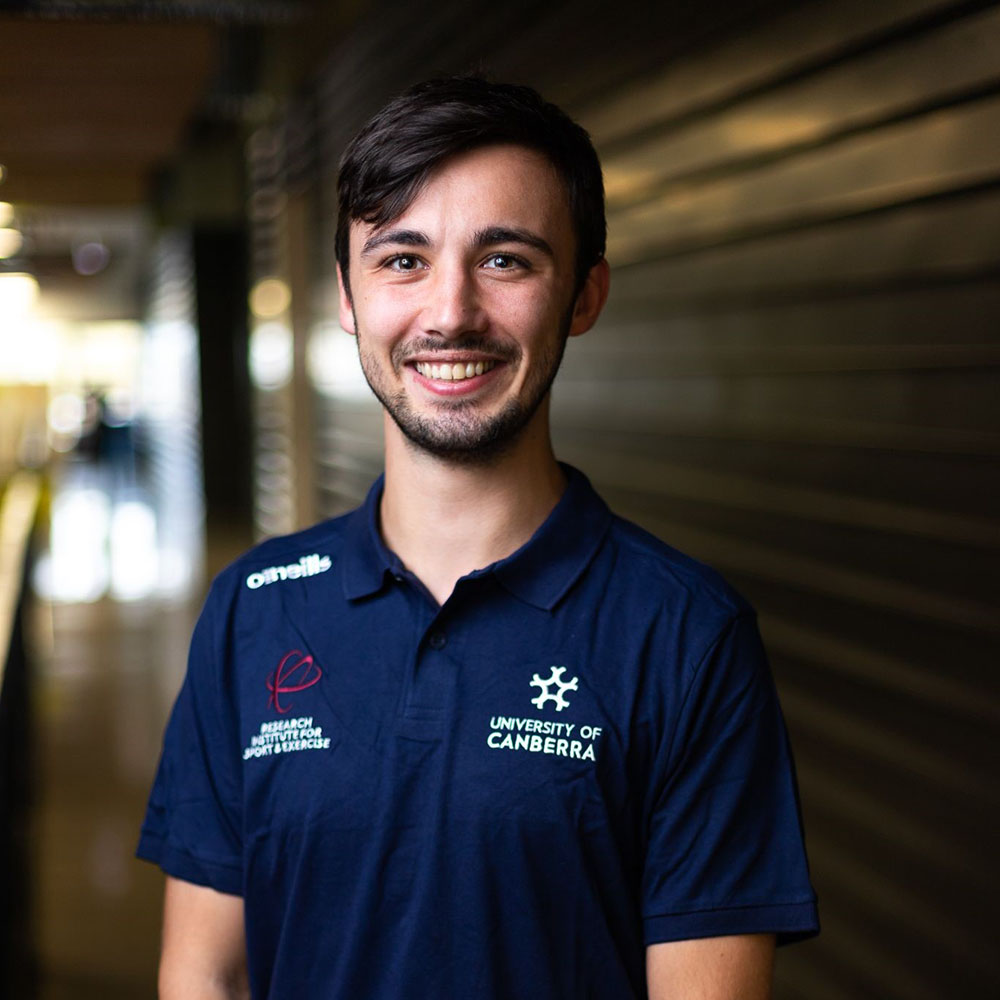
Dr Harry Brown
Postdoctoral Research Fellow
PhD - University of Canberra

Dr Alex Hansen
Postdoctoral Research Fellow
PhD - University of Innsbruck
- Kevin John - Influence of post-exercise hot water immersion heat acclimation on endurance and neuromuscular performance in female athletes
- Josh Elliot - Optimising heat acclimation in elite athletes across the high-performance sport system
- Peter McDonald - The influence of environmental characteristics on heat acclimation adaptions
- Felicity Bright (2023) - The thermophysiology of self-paced exercise
- Alice Wallett (2022) - The effect of exercise and heat stress on indirect blood markers of gastrointestinal damage in well-trained populations
- Avish Sharma (2019) - Optimising training prescription and periodisation during altitude training in elite runners
- Michael Davies (2018) - Effects of environmental and feedback manipulations on exercise regulation in cyclists
- Harry Brown (2024) - Seasonal Heat Acclimatisation: From Youth to Adulthood
- Thomas Topham (2024) - Thermoregulatory responses to exercise-heat stress in children and adults
- Australian Institute of Sport
- ACT Academy of Sport
- Athletics Australia
- Brumbies
- New South Wales Institute of Sport
- South Australia Sport Institute
- Victoria Institute of Sport
- Western Australia Institute of Sport
- Aspetar
- World Athletics
- World Triathlon
- The Coca Cola Company
- Australian Defence force
- Australian Institute of Sport (Australian Sports Commission)
- Fédération Internationale de Football Association (FIFA)
- National Health and Medical Research Council (NHMRC)
- Sports Medicine Australia (SMA)
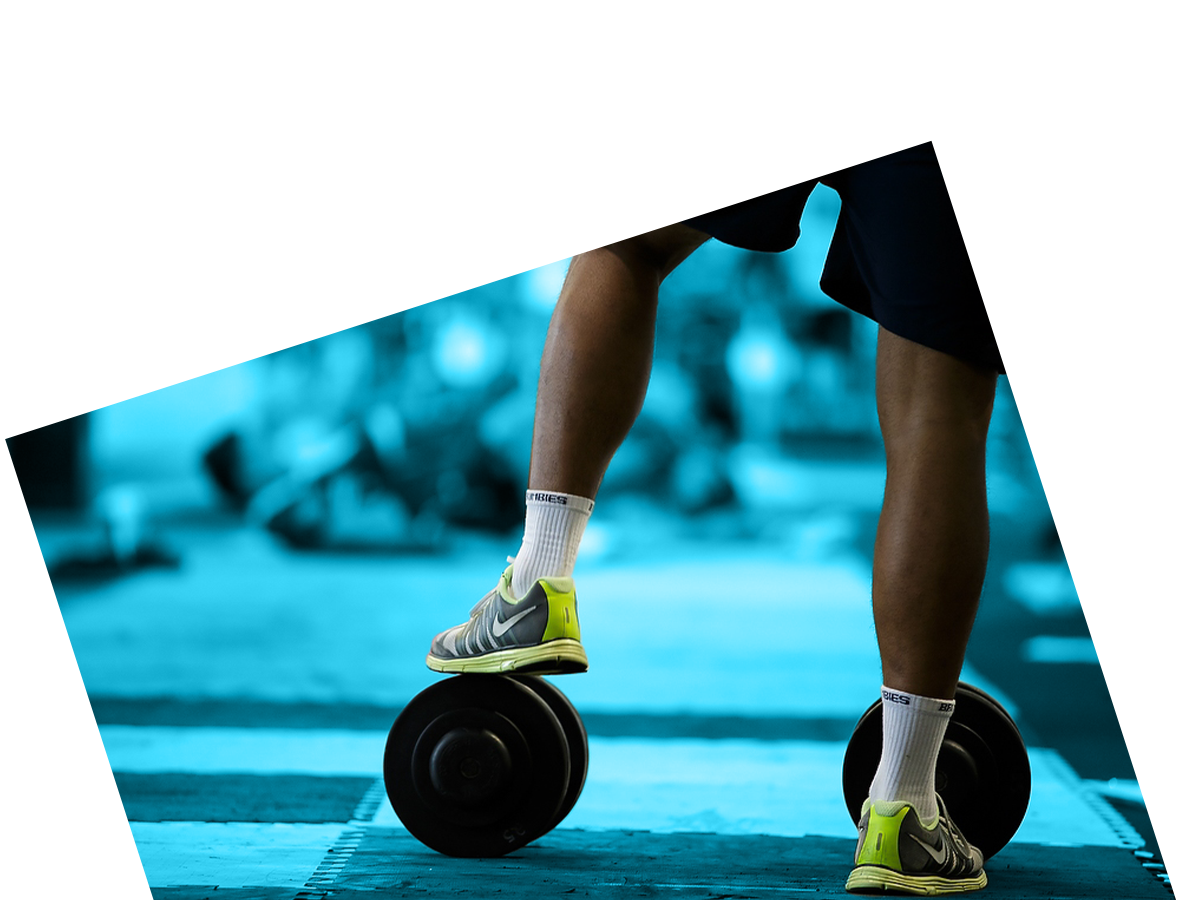
UC Research Institute for Sport and Exercise
Building 29
11 Kirinari Street
Bruce, 2617

